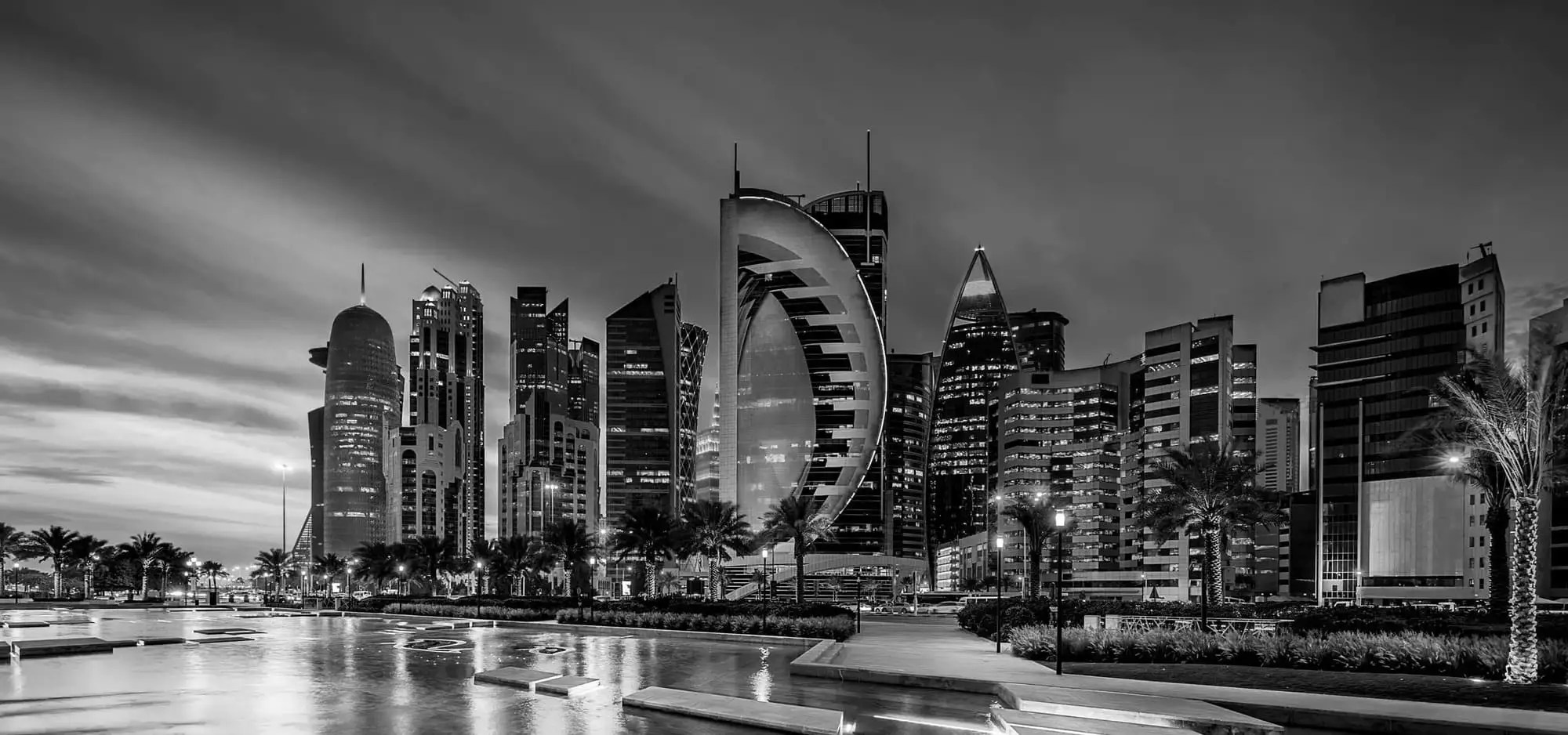About Qatar Free Zones
Qatar Free Zones were created to attract international companies and give them a straightforward way to operate in the country. Established in 2018, they were designed to draw investment into areas beyond oil and gas and to link Qatar more closely with global trade.
The zones operate under their own legal and tax system, separate from domestic civil law. This gives businesses a familiar and predictable framework when setting up. Firms in QFZ can be 100% foreign-owned, repatriate profits freely, and benefit from Qatar’s network of double tax treaties. With direct links to Hamad International Airport and Hamad Port, they also give companies a platform for regional and international trade.
Qatar Free Zone is the first free zone jurisdiction to be established in Qatar. Set up primarily to focus on the industrial, logistics, manufacturing, and technology sector growth. QFZ has a national partnerships platform to connect QFZ investors with Qatar’s biggest companies, including QatarEnergy and Qatar Airways. With strong commitments and undeniable tax benefits, many foreign investors are exploring what QFZ has to offer for business set up in Qatar.
Key Features of QFZ Business Set Up
Why set up in QFZ?
QFZ provides a stable base with rules modelled on international standards. Corporate tax is capped at 10% on profits made in Qatar and any profits from overseas operations are exempt from local taxation. There are also no withholding taxes on dividends, interest, or royalties, and capital can be moved without restriction.
These financial advantages are matched by practical ones. Companies benefit from modern infrastructure, ready access to shipping and air routes, and a growing network of banks, consultancies, and logistics providers already active in the zones. Many firms use QFZ as a distribution hub, regional headquarters, or as a base for manufacturing and re-export.
Company structures
Businesses can register in QFZ under different forms. The most common is the limited liability company, which works for most commercial and service activities. International firms can also choose to set up a branch so they can run the same operations as their parent in Qatar. Joint ventures can be formed for shared ownership projects, while special purpose vehicles are available for holding assets or structuring investments.
Each structure comes with its own registration process and reporting duties. The right choice depends on your chosen business model, ownership, and long-term plans.
Licensing and regulation
All companies in QFZ need a licence from the Qatar Free Zones Authority (QFZA) with the type dependent on the activity being carried out.
Industrial and logistics businesses are usually based near the port or airport, with access to warehouses, factories, and bonded areas. Service providers such as consultancies or technology firms are typically licensed for professional or commercial activities.
QFZA also oversees ongoing compliance. Companies must file annual returns, keep corporate records up to date, and report changes to directors, shareholders, or activities. Many are also expected to show some level of presence in Qatar, which could mean an office, local staff, or regular board meetings.
Tax and incentives
Companies in the free zones pay a flat 10% tax on profits made in Qatar, while income from outside the country isn’t taxed. Goods imported into QFZ for re-export or approved manufacturing are exempt from customs duties, which makes it an efficient base for regional trade.
More than 80 double tax treaties extend further benefits, helping companies cut exposure to overseas taxes. This makes QFZ attractive for holding companies, trading operations, and regional headquarters.
On the practical side, firms gain from simplified visa processes, access to modern office and industrial facilities, and flexible employment rules that support growth.
Sector focus
The free zones were set up with priority industries in mind. These include logistics, advanced manufacturing, technology, clean energy, food processing, and maritime services.
Ras Bufontas Free Zone is located next to Hamad International Airport and is tailored to light manufacturing, aviation, and technology businesses. Umm Alhoul Free Zone, beside Hamad Port, focuses on shipping, maritime industries, and heavier manufacturing. This sector focus means companies can find facilities and partners suited to their line of work.
Why incorporate in QFZ with us?
At Sovereign, we work with clients through every stage of setting up in QFZ. Our team helps choose the right structure, prepares and submits the applications, and deals directly with QFZA on licensing matters.
After registration, we stay involved. We provide secretarial support, ensure compliance filings are on time, and handle accounting and tax reporting. We also keep clients informed of regulatory updates so they can adjust without disruption.
Through our international offices, we support businesses that use QFZ as a base to expand across the Gulf and beyond. Our role is to keep the structure steady and obligations clear, so clients can focus fully on growth.

